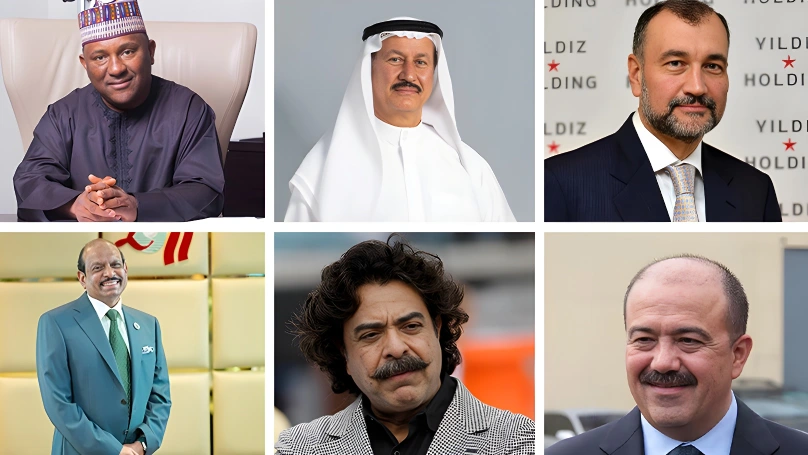With an expected and upcoming global economy in 2025, the fortunes of influential personalities showcase a plethora of influential personalities and among them is the place of Muslim billionaires. These befittingly wealthy Muslim personalities come from diverse industries like the auto sector; the technology space; real estate and retail understand the fact that they have amassed huge fortunes but have also done something to their industries and communities.
The stories of these innovative minds and their resilience coupled with strategic visionary plans are what open the window to the dynamic relationship between faith, culture, and commerce in this interconnected world of today.
This research article will discuss the lives and legacies of these influential Muslim billionaires-their journeys to success, the industries they have disrupted, and the philanthropic initiatives they support. In studying their stories, one inevitably unpacks the multifaceted ways through which these men shape the global economy and inspire future generations.
By Shahid Khan’s automotive kingdom to Azim Premji’s technological innovations and from Yusuff Ali’s retail dominance to Hussain Sajwani’s real estate ventures-each story celebrates the fact that indeed most Muslim entrepreneurs continue to have a great influence on the world’s financial and social fabric.
Revenue Streams of Muslim Billionaires
Muslim billionaires today derive their wealth from various sources including industries and businesses. The following table highlights the category wise primary revenue streams which form the potatoes in their fortunes:
| Key Figures | Industry | Notable Companies/Investments |
| Shahid Khan | Automotive | Flex-N-Gate |
| Azim Premji | Technology | Wipro |
| Iskander Makhmudov | Industrial Manufacturing | Ural Mining and Metallurgical Company, Cevital |
| Issad Rebrab | Algeria’s Industrial Titan | founder of Cevital Group |
| Yusuff Ali | Retail | Lulu Group International |
| Hussain Sajwani | Real Estate | DAMAC Properties |
| Murat Ülker | Food Industry | Yıldız Holding |
| Abdullah bin Ahmed Al Ghurair | Banking & Finance | Mashreq Bank |
| Abdul Samad Rabiu | Cement & Commodities | BUA Group |
| Najib Mikati | Telecommunications | Investcom, M1 Group |
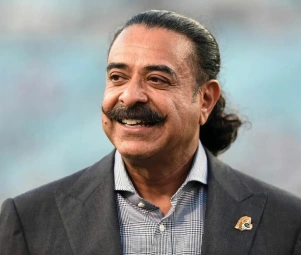
Shahid Khan: The Automotive Mogul
net worth: $12.8 Billion
Shahid Khan is a Pakistani-American businessman who is a classic rags-to-riches story. Born in Lahore, Pakistan, Khan migrated to the United States at 16 to study engineering at the University of Illinois. In 1980, Khan acquired Flex-N-Gate, an auto parts supplier, taking it to a multibillion-dollar level.
Today, Flex-N-Gate is one of the largest suppliers to companies such as Ford and Toyota. Besides this, Khan has extended his investment in sports beyond auto racing, when he bought the NFL’s Jacksonville Jaguars in 2012 and the English Premier League’s Fulham F.C. in 2013. Co-owning also Other Investments include All Elite Wrestling (AEW), which he co-owns with his son, Tony Khan. As of April 2025, it is estimated that he has a net worth of $12.8 billion, making him one of the richest people of Pakistani descent.
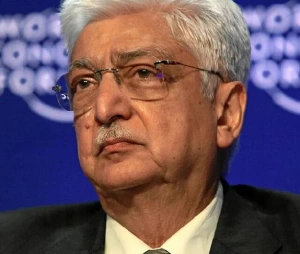
Azim Premji: The Tech Philanthropist
net worth: $11.7 Billion
Azim Premji, popularly called ‘Czar of the Indian IT Industry,’ transformed Wipro from a vegetable oil company to the world’s second-largest IT services company. Under deft planning by him, Wipro would gradually expand its services globally to present itself as one of the very few players in the tech industry.
Again, before an enthusiasm for social causes, in the same halo, Premji became acclaimed worldwide and acknowledged in many figures as one of the most generous philanthropists around the globe for donating almost half of his wealth to education and health initiatives in India.
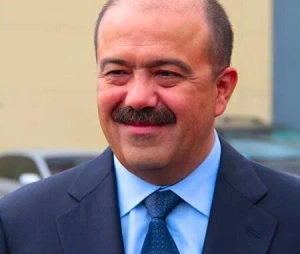
Iskander Makhmudov
net worth: $7.3 Billion
A Russian businessman of Uzbek descent, Iskander Makhmudov, has made substantial inroads into the industrial scene. He is the founder of Ural Mining and Metallurgical Company (UMMC), one of Russia’s largest producers of copper and zinc.
Makhmudov’s interests span transportation and logistics, including investments in railway companies, thus cementing the role of one of the key players in the industrial scene in Russia.
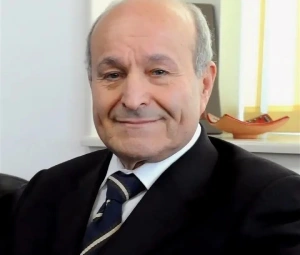
Issad Rebrab
net worth: $3 Billion
Issad Rebrab, a well-known Algerian entrepreneur who founded Cevital Group, the largest private conglomerate in Algeria, was born on May 27, 1944, at Taguemount-Azouz, Tizi Ouzou, Algeria.
Rebrab started his career as an accounting instructor and turned into an entrepreneur in 1971 by investing in a metallurgical construction venture. Many companies set up by Rebrab operate in the steel sector, including Profilor (1975) and Metal Sider (1988). In 1995, during the unrest of the civil war in Algeria, Rebrab’s industrial installations were destroyed in a terrorist attack, and Rebrab left for France. Ever since he returned in 1998, he has expanded Cevital in several sectors: food processing, agribusiness, and electronics. Cevital operates one of the largest refineries for sugar in the world, with a sugar production capacity of 2 million tons a year.
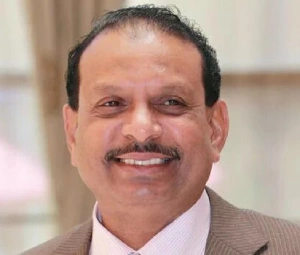
Yusuff Ali: The Retail King
net worth: $5.4 Billion
Much of the advancement in the retail sectors of the Gulf region has been due to Ali’s business ventures. He has been praised for philanthropic initiatives in education and healthcare. Yusuff Ali is an Indian businessman based in the UAE.
CEO and managing director of Lulu Group International, he has successfully led Lulu to become a retail giant with hypermarkets and malls in the Middle East and Asia.
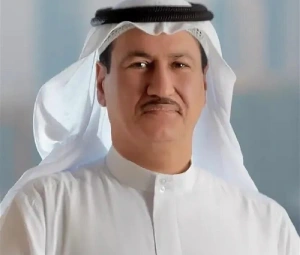
Hussain Sajwani
net worth: $10.2 billion
Hussain Sajwani is the founder and chairman of DAMAC Properties, one of the largest luxury property development companies in the Middle East, born in Dubai in 1956. After earning an indus¬trial engineering degree from the University of Washington, Sajwani worked for a short period with GASCO, a subsidiary of ADNOC, thriving as a contracts manager.
Sajwani launched a catering business in 1982 by bringing small contracts with clients like the U.S. military and Bechtel, one that set up a precedent against which all of his following attempts at entering the real estate industry were measured.
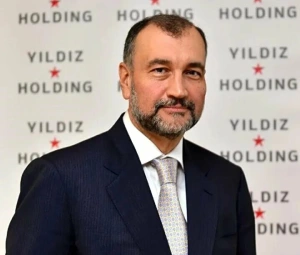
Murat Ülker
net worth: $5.4 Billion)
Born in Istanbul in 1959, Murat Ülker is the chair of Yıldız Holding, the largest food industry company in the region of Central and Eastern Europe, the Middle East, and Africa (CEEMEA). Murat Ülker is the son of Sabri Ülker, the founder of the Ülker company in 1944.
Having graduated from Boğaziçi University with a degree in business administration. he began working on the family business in 1984, gaining managerial experience through various positions and international training programs.
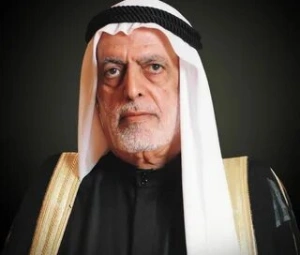
Abdullah bin Ahmed Al Ghurair
net worth: $4.5 Billion
Born into the 1930s in Dubai, Abdullah bin Ahmad Al Ghurair is one of the most prominent Emirati businessmen and philanthropists. He founded Mashreqbank in 1967, a bank that has grown to be one of the leading banks in the UAE. Besides banking, his business interests range across construction, real estate, and food industries.
Remarkably, his construction activities were involved in the likes of the exterior cladding for Burj Khalifa and the Dubai Metro.
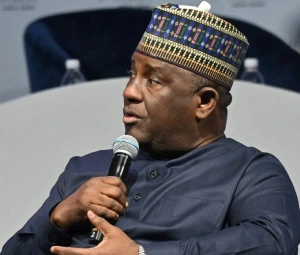
Abdul Samad Rabiu
net worth: $4.6 Billion
Samad Rabiu, an eminent businessman and philanthropist, was born on August 4, 1960, in Kano, Nigeria. He is known as the founder and chairman of BUA Group, which is a Nigerian conglomerate with interests in manufacturing, infrastructure, and agriculture, generating over $2.5 billion in revenues.
Rabiu’s starting point in business was in 1988 when he incorporated BUA International Limited, which would engage into trading commodities. It later imported rice, edible oil, flour as well as iron and steel. In line with this, BUA signed its first deal with Delta Steel Company a government-owned entity- where it supplied raw materials from the company in exchange for finished goods for further growth.
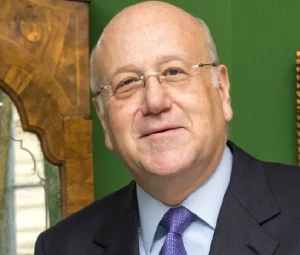
Najib Mikati
net worth: $3.1 Billion
Najib Mikati was born in Tripoli, Lebanon, on November 24, 1955. Najib Mikati is a prominent Lebanese businessman and politician. He co-founded the M1 Group, a diversified investment firm with interests in telecom, real estate, and finance. He made it into the list of richest Lebanese with enormous business acumen.
Mikati is well known for philanthropy beyond business and politics, especially in education and community development. His influence in the economic and political fabric of Lebanon avouches to him being one of the effective changemakers in that nation.
The Influence of Islamic Finance
It is the present reality that Islamic finance has now made sterling in-roads into the edifice of global finance, offering an alternative model based on ethical principles and risk-sharing.
Islamic finance is, in essence, based on Shariah laws, which clearly and definitively forbit interest and then talk about profit-and-loss sharing coupled with asset-backed financing and ethical investments. Such principles show a practice oriented approach to financial inclusion and social justice because it aligns finance with moral and ethical standards.
Islamic finance has made its place beyond Muslim-majority countries; more than 80 countries are engaged in it. Most importantly, it has, among others, such countries as Saudi Arabia, Iran, Malaysia, and the UAE, which have taken a huge share of Shariah-compliant assets. The industry’s nature of stability and ethics has attracted a wide range of global investors interested in resilient and responsible financial instruments.
Conclusion
The influence Muslim billionaires have had on the world economy is tremendous and vastly multifaceted. These individuals, in addition to doing exceptional work financially, have made pivotal contributions toward the development of industries, innovation, and ethical business practices.
From Shahid Khan’s work in the automotive and sports industries to Azim Premji’s work in technology and philanthropy, each billionaire’s story is a tale interwoven with entrepreneurship and giving back to society. Their stories provide a glimpse into the different pathways that provide opportunity, and the role of visionary leadership in their success.
so, the ideals of Islamic finance underscore ethical investments and risk sharing, and hence have become more accepted in the international markets and proposed, as an alternative, for sustainable economic development. The fast growth of the Islamic finance asset base, forecasted to rise to $6.7 trillion by 2027, illustrates the relevance of this new development in the global financial arena.
The future growth of Muslim billionaires and Islamic finance implies the movement toward more inclusive and ethically grounded economic practices. Their legacy acts as an inspiration to potential entrepreneurs around the globe to show that success can be attained while adhering to values and social responsibility.

